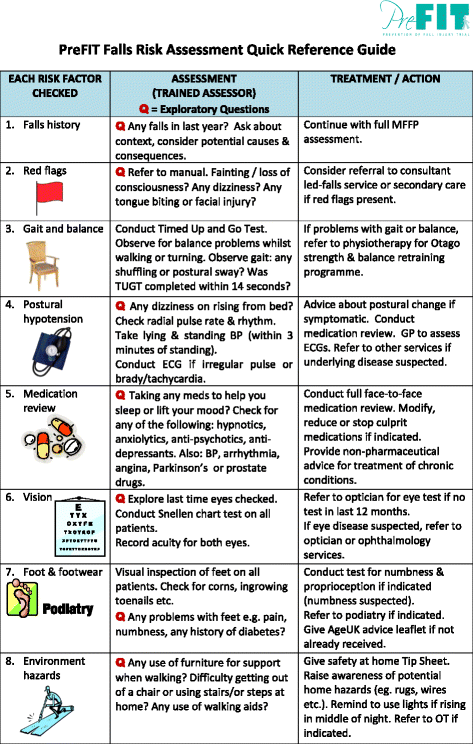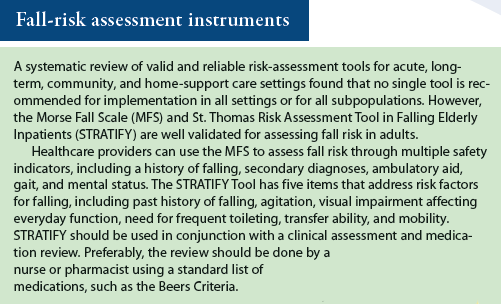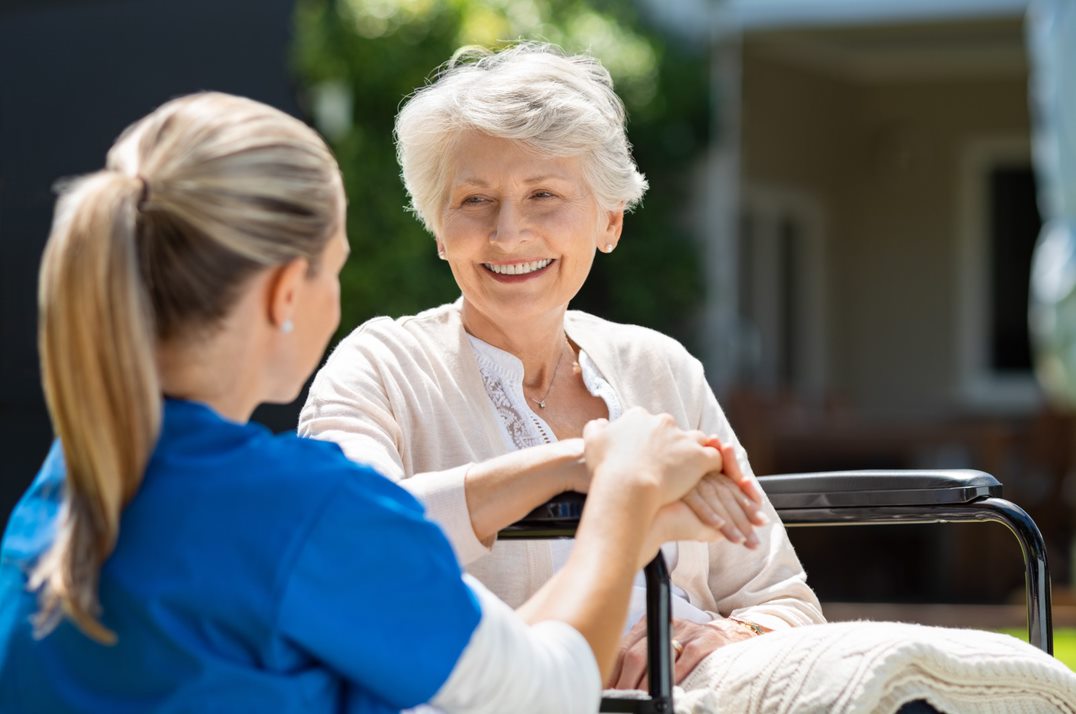The 30-Second Trick For Dementia Fall Risk
Table of ContentsSome Known Details About Dementia Fall Risk The Facts About Dementia Fall Risk UncoveredHow Dementia Fall Risk can Save You Time, Stress, and Money.Everything about Dementia Fall RiskDementia Fall Risk for Beginners
The FRAT has 3 sections: fall risk status, threat factor checklist, and action strategy. An Autumn Danger Standing includes information concerning background of recent drops, medications, psychological and cognitive status of the person - Dementia Fall Risk.If the person ratings on a danger element, the matching number of factors are counted to the patient's fall risk rating in the box to the much. If a patient's loss risk score completes 5 or higher, the person is at high threat for drops. If the person scores only 4 factors or lower, they are still at some danger of dropping, and the registered nurse must use their ideal scientific assessment to handle all autumn risk variables as component of an alternative treatment strategy.
These basic methods, in general, assist create a secure setting that decreases unintentional drops and defines core preventative steps for all people. Signs are essential for people at danger for drops.
The 5-Second Trick For Dementia Fall Risk
Wristbands should consist of the individual's last and first name, day of birth, and NHS number in the UK. Only red shade ought to be utilized to indicate special person standing.
Items that are as well much might need the client to connect or ambulate unnecessarily and can possibly be a risk or contribute to drops. Aids stop the patient from heading out of bed with no help. Registered nurses react to fallers' call lights quicker than they do to lights started by non-fallers.
Visual disability can substantially trigger falls. Hip pads, when put on effectively, may minimize a hip fracture when autumn happens. Keeping the beds closer to the flooring lowers the threat of drops and severe injury. Positioning the mattress on the floor dramatically minimizes autumn risk in some healthcare setups. Low beds are developed to decrease the range a client falls after moving out of bed.
How Dementia Fall Risk can Save You Time, Stress, and Money.
Patients that are high and with weak leg muscle mass who try to rest on the bed from a standing position are most likely to fall onto the bed due to the fact that it's too low for them to reduce themselves securely. If a tall individual attempts to obtain up from a reduced bed without assistance, the person is likely to fall back down onto the bed or miss out on the bed and drop onto the floor.
They're developed to promote timely rescue, not to prevent drops from bed. Apart from bed alarm systems, boosted supervision for risky people also might aid prevent drops.

Individuals with a shuffling stride increase fall opportunities substantially. To reduce autumn risk, shoes should be with a little to no heel, slim soles with slip-resistant step, and support the ankle joints.
The Ultimate Guide To Dementia Fall Risk
In a research, homes with adequate lighting report less falls (Ramulu et al., 2021). Enhancement in lights find at home may decrease autumn rates in older grownups.

Sitters work for assuring a protected, protected, and risk-free environment. Nevertheless, research studies showed very low-certainty evidence that sitters minimize autumn threat in intense care health centers and only moderate-certainty that choices like video clip monitoring can lower caretaker usage without increasing fall threat, suggesting that caretakers are not as helpful as initially thought (Greely et al., 2020).
The 10-Second Trick For Dementia Fall Risk

Raised physical fitness lowers the danger for falls and limits injury that is endured when fall takes place. Land and water-based workout programs may be in a similar way beneficial on equilibrium and stride and consequently reduce the danger for falls. Water exercise may contribute a positive benefit on balance and stride for women 65 years and older.
Chair Surge Workout is a basic sit-to-stand exercise that helps strengthen the muscular tissues in the thighs and butts and improves movement and independence. The objective is to do Chair Rise exercises without using hands as the client ends up being more powerful. See sources area for an in-depth direction on just how to carry out Chair Increase workout.